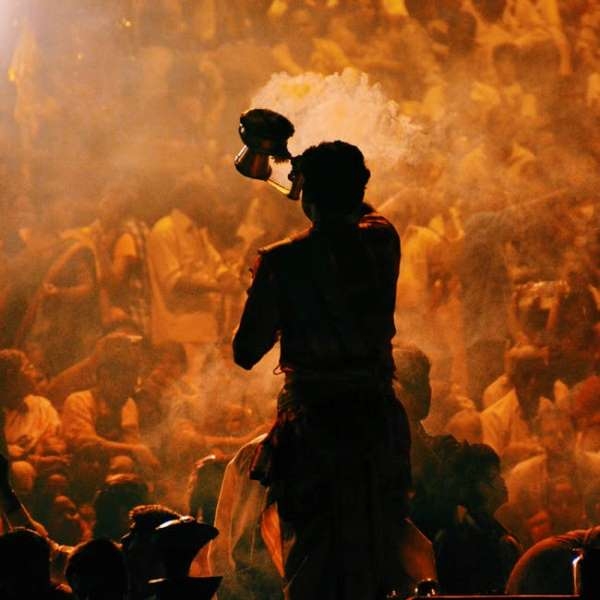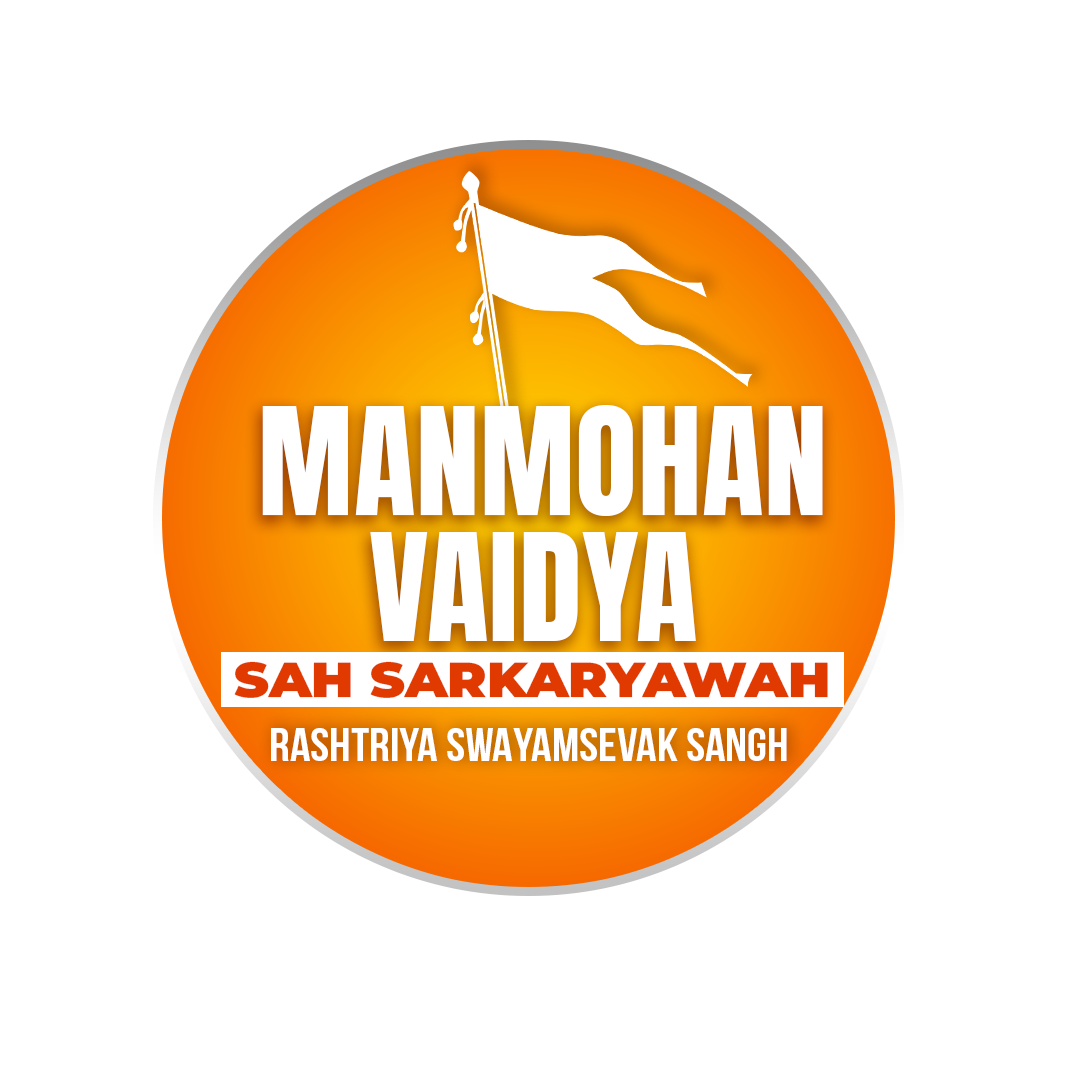
It is indeed a sad commentary that some Congress leaders, under the influence of the Church as well as the Communist ideology, have resorted to making anti-national comments with the narrow intent of reaping political dividends, thereby dealing a blow to our national identity and self-esteem. Since these leaders are so-called eminent scholars whose curriculum vitae can put many to shame, I am reminded of the comments made by former President of India Dr S Radhakrishnan in his ‘Report on Higher Education in free India’ published in 1948.
In the report, he talks about “The Un-Indian Character of Education”, where he laments upon how the modern education system is not at all in sync with the Indian philosophical heritage and ethos. “One of the major complaints against the system of education which has prevailed in this country for over a century is that it obliterated India’s glorious past, and that it deprived the Indian students of knowledge about their own culture and traditions. Unfortunately, this has produced in some cases a feeling that we as a civilization are without roots; and, what is worse, that our roots limit us to a world which is completely shorn of the present reality of modern world outside.”
Recently, a senior Congress leader stated that if BJP returns to power in 2019, India will become a “Hindu Pakistan”. In fact, it is the pursuit of foreign philosophies like communism that have not only impacted the Bharatiyata of our people but also their language and terminology. In reality, the very terminology “Hindu Pakistan” is an oxymoron. The usage of words like ‘Hindu Pakistan’, ‘Hindu Taliban’ and ‘Hindu Terror’ is an attempt to change the Bharatiyata narrative and a prime example of the expression of the ‘un-Indian’ thought process of such pseudo-intellectuals.
Before we move on to the irrelevance of this misconstrued narrative, it is important to understand what defines Bharat and Hindutva.
I may recall here that recently, during his visit to the Rashtriya Swayamsewak Sangh (RSS) Headquarters in Nagpur, former President Dr Pranab Mukerjee said, “The concept of a ‘Nation State’ as in the West is completely different from our concept of a nation. A India was a state long before the concept of the European Nation State gained ground. This model- of a defined territory, a single language, shared religion and a common enemy- Is the model which led to the formation of various nation states in Europe. On the other hand Indian Nationalism emanated from” universalism” the philosophy of Vasudhaiva Kutumbaka and Sarve Bharati Sukhinah, Sarve Santu Niramayah. We see the whole world as one family and pray for the happiness and good health of all. Our national identity has emerged through a long drawn process of confluence, assimilation, and co-existence. The multiplicity in culture, faith and language Is what makes India special. We derive strength from tolerance. We accept and respect our pluralism. We celebrate our diversity. These have been a part of our collective consciousnesses for centuries. Any attempt at defining our nationalism In terms of dogmas and identities of religion, region, hatred and intolerance will only lead to dilution of our national Identity.”
It is this fundamental philosophy of generosity, tolerance, inclusiveness and universal care that forms the bedrock of our country’s spirituality-based identity and an all-encompassing view of life. This is well known to the whole world. This has been described as “Hindu View of Life” by Dr Radhakrishnan. He says : “The Hindu method of reform enables every group to retain its past associations and preserve its individuality and interest. For as students are proud of their colleges, so are group of their gods. We need not move students from one college to another, but should do our best to raise the tone of each college, improve its standards and refine Its ideals, with the result that each college enables us to attain the same goal.”
We see that the Hindu recognises one supreme Spirit, though different names are given to It. In his social economy he has many castes, but one society. In the population there are many races and tribes, but all are bound together by one common spirit.
In his book, “Swadeshi Samaj”, Gurudev Rabindranath Tagore underlines this very fact. There in he says “To feel unity in diversity, to establish unity amongst variety – this is the underlying Dharma of Bharat. Bharat does not regard difference as hostility, she does not regard other as enemy. That is why without sacrifice or destruction she wants to accommodate everybody within one great system. That is why she accepts all ways and sees the greatness of each in his own sphere.” Further he says, “Because of this virtue in Bharat we shall not be frightened considering any society as our opponent. Each fresh conflict will enable us to expand ourselves. The Hindus, the Buddhist, the Muslim and the Christian will not fight each other and die in India, here they will find a meeting point. That point will not be non-Hindu, but very specifically Hindu. However foreign may be her body parts, her life and spirit will be of Bharat.”
Congress leaders seem to forget that it was contravention of this very generosity, inclusiveness, integral and all-encompassing spirituality that gave birth to Pakistan. The entire event was a consequence of an education system that encouraged philosophies such as communism that negated “Bharatiyata” on the hollow presumption that to do so was a necessity in order to “move with the times”. Basic lessons of history, that Pakistan was born as an antithesis to “Bharatiyata” were forgotten.
The identity of Bharat is its territorial integrity, its self-reliance, its spiritual reservoir of wisdom passed down thousands of years, its cultural ethos and the deep resonance of its philosophy. Is it therefore not surprising that these ultra-modern and well-educated Congress leaders are destroying this unparalleled legacy of Bharat just for electoral benefits ? What they are doing is in fact threatening the very existence of Bharat, negating its present and in fact recreating the same scenario which had led to the Partition of India!
In fact, our 5000 year old civilizational values of tolerance, celebration of diversity and cultural ethos which had been described by Dr Pranab Mukerjee, Dr S. Radhakrishan and Gurudev Rabindranath Tagore as the “Hindu Way of Life” are all an equal legacy of Pakistan as well. However, I consider it pitiable that Pakistan chose to forego this rich legacy. Pakistan could well have claimed this ancient legacy while simultaneously choosing to practice their own religion. It would still have remained Hindu ! The two identities were not in conflict with each other. The Hindu view of life would have assisted it in finding a place of respect in the world. Mr MC Chagla, Dr APJ Abdul Kalam and Pakistan born Canadian citizen Mr Tarek Fateh, are amongst the many Muslims who continue to claim their Hindu civilizational identity. Hence, if Pakistan had remained a Muslim nation but continued to follow its ancient legacy of tolerance, we could have today labeled it as “Hindu Pakistan”. In this respect, look at the example of Nepal which despite being a separate nation has enjoined itself to this legacy and heritage. Hence, even though it is a neighbor as well, there has been no conflict with Nepal. On the other hand, both countries have set forth exemplary peaceful co-existence.
It is due to its deep cultural roots that Bharat has developed a unique identity in the world. This unique identity was made distinct by the “Hindu Identity” or “Hindu Way of Life” as described by Gurudev Tagore and Dr Radhakrishnan. If people are averse to the term Hindu it may be referred to as Indic or Bharatiya as well. However its content, its cultural imperatives and resonance do not change. In either case, Hindu faith believes that the truth is unequivocal, and it may be called by different names. However, the main question is how does one remain rooted in Indic philosophy and tradition? An example of this may be found in a story about Acharya Mahapragya, a Shwetambara Jain monk. Acharya was considered a leading nationalist monk and he once said, “I am a Sthanakvasi, hence I am a Shwetamabara Jain. I am a Shwetambara Jain because I am a Jain. And I am a Jain because I am Hindu”. This is a beautiful example of Bharatiya thought, that one can hold many identities, embody diversity and yet see no contradiction in this existence.
This has been Bharat’s traditional thinking forever, a celebration of diversity. However, over a period of time, this attachment to one’s roots got weakened and the narrative changed. The new paradigm became – I am a Hindu, but I am a Jain. I am a Jain, but I am a Shwetambar. I am a Shwetambar, but I am a Sthankayasi Jain or I am a Terapanthi Jain.
It is this disconnect with our roots that creates a situation where we delve into petty and narrow-minded politics and try to change the very basis of our identity and existence. This is exactly what is happening now where some Congress leaders have chosen to make irresponsible statements and chant slogans like ‘Hindu Pakistan’, ‘Hindu Taliban’, ‘Hindu Terror’ etc. The nadir is reached when, in utter disregard of our own identity, we bring down the esteem of an entire nation through anti-national slogans like ‘Bharat tere tukde honge..’, ‘Bharat ki barbadi tak jung chalegi, jung chalegi…’
It is a pity that such terminology and slogans are the brain-child of the so-called elite, educated and progressive people, considered “enlightened”. I reiterate that it is not the poor and backward who chant these anti-national slogans ! These are chanted by students studying in most modern and progressive government funded institutions. Whereas Universities must remain the organs of civilization, these students are aided and abetted in this anti-national exercise by none other than some of their own professors who have been educated in our country but have fallen prey to shallow foreign ideologies. It is not the poor who speak in these tones but the privileged and the entitled. There is no better example of ‘Un-Bharatiya’ behavior than them.
It is for this reason that Dr Pranab Mukerjee reminded us of the 5000 year old heritage of our country. One thing which is for sure is that only If we choose to retain our connect with our roots and our civilizational heritage, can we stay true to our identity.
The famous poet Prasoon Joshi has written :
उखड़े उखड़े क्यों हो वृक्ष, सूख जाओगे।
जितनी गहरीं जड़ें तुम्हारी, उतने ही तुम हरियाओगे।
(…If you lose touch with your roots, you will fail in all your endeavors
As you embark in a new direction or in pursuit of your dreams, never forget your roots
The deeper your roots, the more you will prosper and rise
Understanding your heritage and ancestry will ensure a secure and bright future …)
Dr. Manmohan Vaidya
Sah Sarkaryavah(Joint General Secretary) RSS
Article published in Hindustan Times on 8th & 9th August 2018 in two parts
